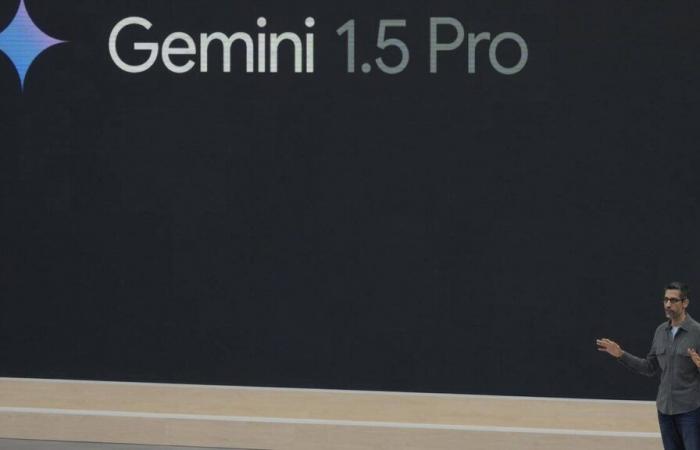The Holy Grail of Silicon Valley is now these “agents”, when the machine becomes a sort of omniscient secretary, available at all hours and capable of carrying out numerous tasks, from messages to be sent to shopping on the Internet.
According to Google boss Sundar Pichai, Gemini 2.0 must open “a new era” of generative AI, which will directly facilitate the daily lives of users. “Gemini 2.0 is the ability to make information much more useful,” he underlined in a blog note announcing Gemini 2.0, emphasizing the ability of the new model to understand a context, anticipate and take decisions. decisions, “under your supervision”.
Several projects in progress
Gemini desktop users can now test Gemini 2.0 Flash, one of the models in the new family, while an experimental, multimodal version has been made available to developers. Some have already published videos showing their interactions with the service. Multimodality makes it possible, for example, to show objects to AI, which can analyze them and answer questions about them, in real time and orally.
Demis Hassabis specified that, thanks to Gemini 2.0, his teams are making progress on several projects. Notably “Project Astra, our vision for a universal AI assistant”, “Project Mariner” to improve interactions between humans and digital agents, and “Jules”, a tool for coders.
In a video published on The agent thus navigates the Internet autonomously, deciding which keywords to enter in the search bar, which links to click, etc. He can also select products to purchase, but not click on the button to finalize the purchase.
Faced with the threat, Google responded with “AI Overviews”
Google plans to gradually integrate Gemini 2.0 into its range of different products, from the search engine to mobile applications, in several languages. “No product has been transformed as much by AI as research,” notes the Californian giant on its blog.
Generative AI constitutes, in fact, the first major threat to its core business, the sale of online advertising, since Google became synonymous with Internet search. Technology increasingly makes it possible to bypass this task, by directly asking an AI model a question.
Google reacted by launching “AI Overviews”: the engine responds to queries with a written response and different options, before the traditional list of links. The service now reaches 1 billion people, the company said, promising to soon add “the advanced reasoning capabilities of Gemini 2.0”.
Meta (Facebook, Instagram), Microsoft, OpenAI, Google and, more recently, Apple and Amazon have all invested astronomical sums in the development of generative AI that can make everyday tasks easier and improve productivity. They have their sights set on a universal AI agent, which would interact on behalf of people with their software and applications.






